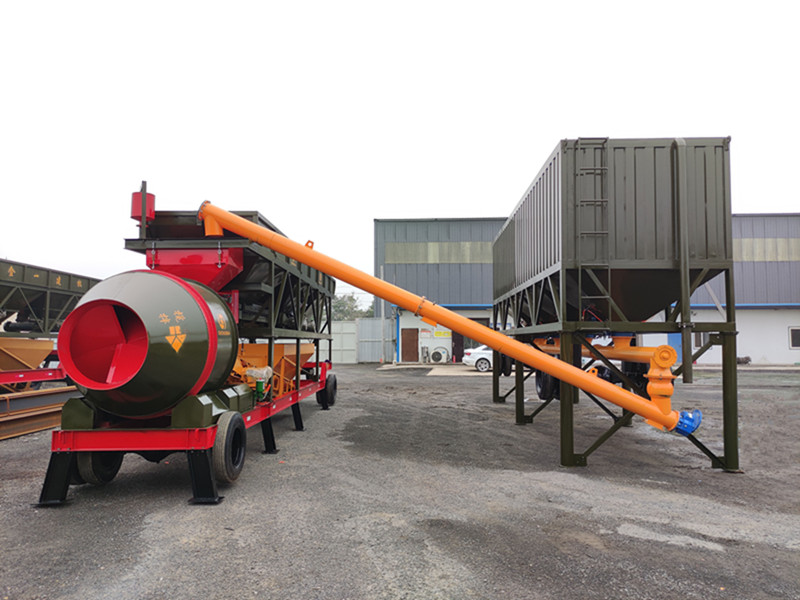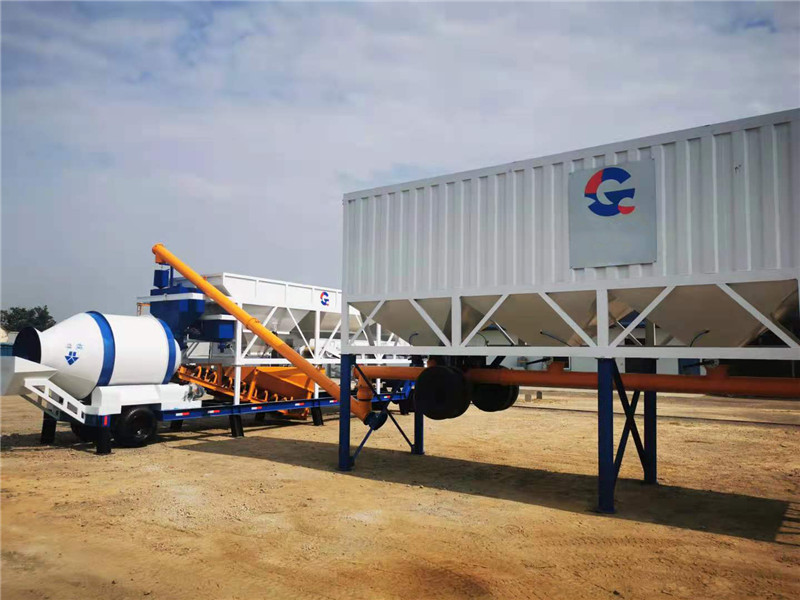How does the concrete batching plant work?
A concrete plant, also known as a batch plant or batching plant, is a device that combines various ingredients to form concrete.
Some of these inputs include sand, water, aggregate (rocks, gravel, etc.), fly ash, potash, and cement.


There are two types of concrete plants:
1. Ready mix plants (A ready mix plant combines all ingredients except for water at the concrete plant. This mixture is then discharged into a ready mix truck (also known as a concrete transport truck). Water is then added to the mix in the truck and mixed during transport to the job site)
2. Central mix plants.(A central mix plant combines some or all of the above ingredients (including water) at a central location. The final product is then transported to the job site. Central mix plants differ from ready mix plants in that they offer the end user a much more consistent product, since all the ingredient mixing is done in a central location and is computer-assisted to ensure uniformity of product.)
A concrete plant can have a variety of parts and accessories, including but not limited to:
● Mixers (either tilt-up or horizontal or in some cases both), The center of the concrete batching plant is the mixer.
● cement batchers,
● aggregate batchers,
● conveyors,
● radial stackers,
● aggregate bins,
● cement bins,
● heaters,
● chillers,
● cement silos,
● batch plant controls,
● and dust collectors (to minimize environmental pollution).
Working:
The concrete batch plants can be categorized into 4 parts:
1. aggregate feeding,
2. powder feeding (fly ash, cement and expanding agent),
3. water and
4. admixture for mixing the materials, conveyance and storage.
● When the control system of mixer is connected to an electricity source, the operation interface of the man-machine interaction will appear and system will begin to process initialization which includes the formula number, concrete slump, concrete grade and productivity.
● Each silo and weighing hopper is tested according to weighing system. Its control system will output the signal of the amount of material to prompt the operator to decide whether to start the control program or not.
● The belt conveyor is initiated to transmit the aggregate to the weighing hopper; the valve of the fly ash and cement tank should be opened and the screw conveyor and motor initiated to transmit them into the weighing hopper;
● The control valve of the water sump and admixture sump needs to be opened to make water and admixture flow into the weighing hopper.
● Once the weight of all material types meets the needs of specific amounts, the door of the weighing hopper is opened automatically.
● The materials will then be mixed by a concrete mixer. Once the setting time is over, the loading door of the concrete mixer opens and the concrete flows into a concrete mixer truck.
● This process is conducted very carefully since concrete must not segregate and also because the concrete must be ready and transported and then used before its preliminary setting time which is between 30-45 minutes.In some countries, this is carried out by a mobile concrete batching machine.
Concrete Batching Plants are basically divided into three major types based on the quantity of concrete to be produced per hour, namely Less than 30cu.m/hour, 30 to 60 cu.m/hour, More than 60 cu.m/hour. We at Shengmao provide all types of batching plants suitable for RMC, Infrastructure, Roads, and Rural and Metro applications.


评论
发表评论